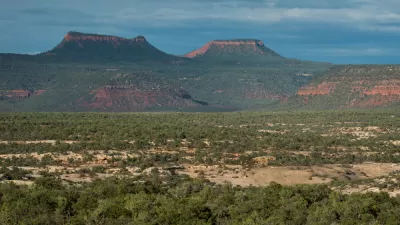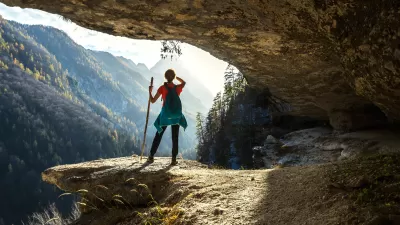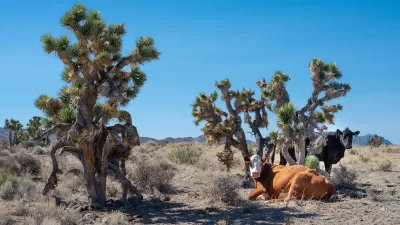It might take a law degree to separate fact and fiction about the law, but Wyoming has gone to new lengths to limit the access of researchers, including Jane and John Q Public, to data found in open spaces.
Justin Pidot pens a scathing critique of Wyoming's new law, Senate Bill 21. According to Pidot, "[Sb21] makes it a crime to 'collect resource data' from any 'open land,' meaning any land outside of a city or town, whether it’s federal, state, or privately owned."
Immediately concerning to Pidot is the definition of "collect," as established by the law, which goes beyond similar laws passed in Idaho and Utah.
"The statute defines the word collect as any method to 'preserve information in any form,' including taking a 'photograph' so long as the person gathering that information intends to submit it to a federal or state agency. In other words, if you discover an environmental disaster in Wyoming, even one that poses an imminent threat to public health, you’re obliged, according to this law, to keep it to yourself."
Pidot's post argues that the state passed the law to protect agricultural interests from the dissemination of information about the levels of E. coli bacteria found in the state's streams and bodies of water. A post by Amy Feitag on the Southern Fried Science website agrees that the "law was clearly written to damp the efforts of water quality citizen watchdog groups…" Feitag also notes that the law re-hashes a fairly common definition of trespassing, but the "key part of the law that’s new is that the data won’t be admissible in court and the act of turning them over to federal or state agencies will make you an outlaw."
FULL STORY: Forbidden Data

Alabama: Trump Terminates Settlements for Black Communities Harmed By Raw Sewage
Trump deemed the landmark civil rights agreement “illegal DEI and environmental justice policy.”

Study: Maui’s Plan to Convert Vacation Rentals to Long-Term Housing Could Cause Nearly $1 Billion Economic Loss
The plan would reduce visitor accommodation by 25% resulting in 1,900 jobs lost.

Planetizen Federal Action Tracker
A weekly monitor of how Trump’s orders and actions are impacting planners and planning in America.

Waymo Gets Permission to Map SF’s Market Street
If allowed to operate on the traffic-restricted street, Waymo’s autonomous taxis would have a leg up over ride-hailing competitors — and counter the city’s efforts to grow bike and pedestrian on the thoroughfare.

Parklet Symposium Highlights the Success of Shared Spaces
Parklets got a boost during the Covid-19 pandemic, when the concept was translated to outdoor dining programs that offered restaurants a lifeline during the shutdown.

Federal Homelessness Agency Places Entire Staff on Leave
The U.S. Interagency Council on Homelessness is the only federal agency dedicated to preventing and ending homelessness.
Urban Design for Planners 1: Software Tools
This six-course series explores essential urban design concepts using open source software and equips planners with the tools they need to participate fully in the urban design process.
Planning for Universal Design
Learn the tools for implementing Universal Design in planning regulations.
Caltrans
Smith Gee Studio
Institute for Housing and Urban Development Studies (IHS)
City of Grandview
Harvard GSD Executive Education
Toledo-Lucas County Plan Commissions
Salt Lake City
NYU Wagner Graduate School of Public Service





























